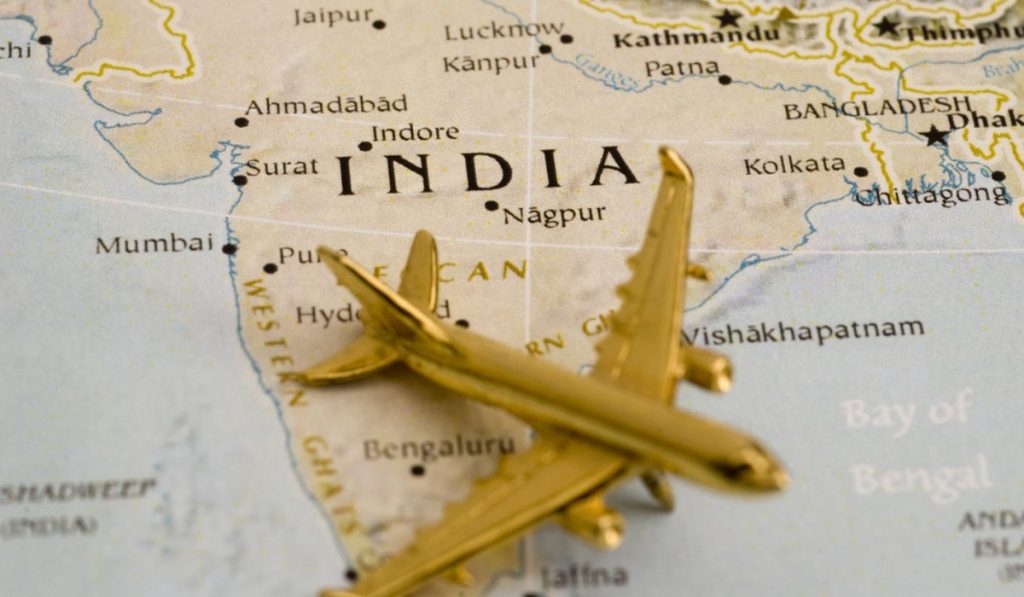Indian eVisa Airports are becoming increasingly popular as a travel destination for people from all over the world. If you’re planning on travelling to India, it’s important to know what kind of visa requirements are in place – otherwise, you could end up having a frustrating experience. In this article, we’ll take a look at the different types of Indian visas and what you need to apply for them. Indian eVisa Airports
What is an eVisa?
An eVisa is an electronic visa that allows tourists to travel to India for tourism or business purposes. The Electronic Travel Authorization (ETA) is the visa authorized by the Indian government for travelers who require a visa for visit to India. The ETA can be obtained from the nearest Indian embassy or consulate and must be validated before boarding a flight to India.
To qualify for an eVisa, travelers must meet certain requirements related to their intended destination and purpose of travel. For tourists traveling for tourism purposes, applicants must have a passport valid for six months beyond the planned period of stay in India. Applicants may also need a return air ticket and sufficient funds to cover expenses incurred during their visit, including transportation, food, and entertainment. Business travelers must have a valid business visa and sufficient funds to cover expenses while in India.
The ETA process is simple but requires advance planning. Applicants should research the required documents required by their destination country before attempting to apply for an ETA. Additionally, applicants should ensure they have all required documents ready prior to submitting their application online or at an embassy or consulate. If traveling on a commercial airline, applicants will also need a letter of invitation from their host organization in India as well as proof of onward travel arrangements. Indian Visa requirements
How do I get an eVisa?
If you’re planning to travel to India soon, you’ll want to be aware of the visa requirements. Not all countries have a visa-free arrangement with India, so be sure to check before you go.
To get an eVisa, all you need is your passport and valid tourist visa from your home country. You won’t need a invitation letter from a business or tourist agency in India.
To apply for an eVisa, go to the Indian Embassy or Consulate nearest to your home country. You’ll need your passport and your current tourist visa. The application process will vary depending on the embassy or consulate you visit, but generally it involves filling out some forms and paying a fee. You may also need to provide evidence that you have enough money for your stay in India (a bank statement or credit card statement is usually sufficient).
Once you’ve completed the application process and obtained the necessary documents, take them to an Indian immigration checkpoint when you arrive in India. Your eVisa should be ready within a few days.
Requirements for Indian eVisas
Indian E-Visa Airports: Know The Requirements Before You Go
If you’re planning a trip to India, it’s important to be aware of the visa requirements. Indian visas are typically valid for three months and can be extended for an additional three months if required. Additionally, citizens of certain countries require a visa in advance of travel to India.
Here are the specific requirements for Indian visas:
Citizens of Afghanistan, Bangladesh, China (PRC), Ethiopia, Ghana, Kenya, Lesotho, Liberia, Myanmar, Nepal, Nigeria, Pakistan, Palestine (Gaza Strip and West Bank), Somalia, Sri Lanka, Syria or Vietnam need a visa before traveling to India. Citizens of Iraq need a visa if they’re coming from Iran or Turkey.
Additionally: Canadian nationals do not require a visa for entry into India for tourism purposes but will need one if they wish to work in India. The same is true for Australian citizens; however, they are exempt from needing a work permit if their stay is limited to six months or less. New Zealand citizens require no visa for entry into India but must carry proof of onward travel. U.S. citizens do not need a visa for tourism purposes but may need one if they wish to work in India; consult your embassy or consulate for more information on this subject.
What to do if I am not eligible for an eVisa?
If you are not eligible for an eVisa, there are other ways to enter India. You can apply for a visa on arrival at an Indian airport. The process is straightforward and most airports have counters where you can apply. You will need your passport and a copy of your flight ticket. Some airlines also require a letter from your employer certifying that you will not be working in India during your stay. Check with the airline or consulate before making the trip to find out what additional documentation is required.

